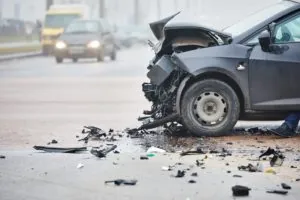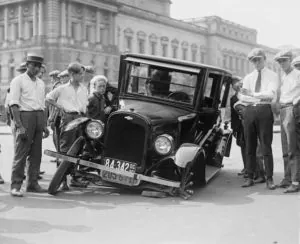The popularity of ridesharing in Ohio is growing significantly. The benefit of ridesharing is that it makes transportation accessible and more affordable. With the introduction of popular ride sharing applications, state law is struggling to catch up with the new form of transportation. Currently, there are a number of complex laws in Ohio addressing issues like who is responsible when rideshare accidents occur.
Common Causes of Ohio Rideshare Accidents
There are many ways in which rideshare accidents are known to occur, which include:
- Aggressive driving by rideshare drivers
- Dangerous conditions that exist in the road
- Drivers who are fatigued or fall asleep at the wheel
- Elderly rideshare drivers who have impaired mental or physical conditions
- Reckless driving
- Rideshare drivers with poorly maintained vehicles
For a free legal consultation, call 513-894-3333
Uber and Lyft Insurance Coverage
When Uber is involved, there are three types of insurance situations:
- An Uber driver who is off duty and not available to passengers is covered only by the driver’s personal insurance policy.
- An Uber driver who is available and on duty but who has not picked up a passenger is covered by the driver’s personal insurance policy as well as Uber’s additional coverage which can include a maximum of $50,000 for injury and a maximum total of $100,000.
- An Uber driver who is on active duty and who has picked up a passenger is covered by Uber’s $1 million liability coverage as well as $1 million uninsured or underinsured insurance coverage.
For drivers who work for Lyft, there are several insurance policies that apply, which include the following:
- A Lyft driver who is off duty and who has not received a ride request is covered only the driver’s personal motor vehicle insurance
- A Lyft driver who has accepted a request for a ride is covered by Lyft insurance, which encompasses up to $1 million for an accident as well as $1 million for uninsured coverage
Hamilton Car Accident Lawyer Near Me 513-894-3333
Two Common Rideshare Accidents
The following two types of rideshare accidents in Ohio tend to resolve in the following ways:
- Uber passengers are injured. Rideshare insurance coverage in these situations can cover up to $1 million in injuries, even if the accident was caused by the opposing driver and this driver lacks insurance. In many situations, however, rideshare companies prohibit accident victims from pursuing compensation greater than $1 million. In these situations, it is often still possible to initiate legal action against the responsible driver, but it is likely that the driver is limited in the amount of compensation that he or she is able to pay.
- Bystanders are injured in accidents. If a pedestrian accident occurs or the operator of another vehicle is injured in an accident with a rideshare driver in Ohio, the outcome will depend on whether the rideshare driver was on duty. If the rideshare driver was on a trip, rideshare insurance will cover up to $1 million. If a driver was off duty, however, the accident victim will be limited in pursuing compensation from only the driver’s personal insurance coverage.
Click to contact our car accident lawyers today
Common Challenges in Obtaining Rideshare Accident Compensation
While there are some situations in which rideshare company insurance does not cover rideshare drivers, not all personal motor vehicle insurance policies cover drivers who are providing professional services.
Some motor vehicle policies even go so far as to prohibit professional driving services. As a result, if a person is involved in an accident with a driver, it is possible that a victim might not have anyone against which to base a claim.
It is also important to understand that the state of Ohio requires minimum commercial coverage of $50,000 for bodily injury for each person involved in an accident, $100,000 for each collision, and $25,000 for property damage.
These amounts, however, are not very high if a person is injured in a motor vehicle collision and accident victims often discover that this coverage does not pay for damage.
Complete a Free Case Evaluation form now
Background Checks for Rideshare Drivers
Under Ohio law, rideshare companies are required to perform background checks on all drivers. The state of Ohio, however, does not require ridesharing companies to present the state with details about what is found during background checks.
These regulations are very different from those involving taxi companies, which must proceed through more stringent background checks.
Why Rideshare Accidents Are Complex
Break down the legal hurdles victims may face:
- Multiple Insurance Sources: Victims often need to navigate claims involving personal driver policies, rideshare company coverage, and, in some cases, third-party fault (e.g. defective parts).
- Determining App Status: It’s critical to establish whether the driver was logged in or carrying a passenger at the time of the accident.
- Independent Contractors: Drivers are classified as independent contractors, which affects liability and limits the direct fault of Uber or Lyft outside app use.
Speak with an Experienced Car Accident Attorney
One of the best steps for rideshare accident victims to take is to obtain the assistance of an experienced car accident attorney.
Contact Kruger & Hodges today to obtain strong legal representation who will remain committed to making sure you obtain the compensation you deserve.
Call or text 513-894-3333 or complete a Free Case Evaluation form






